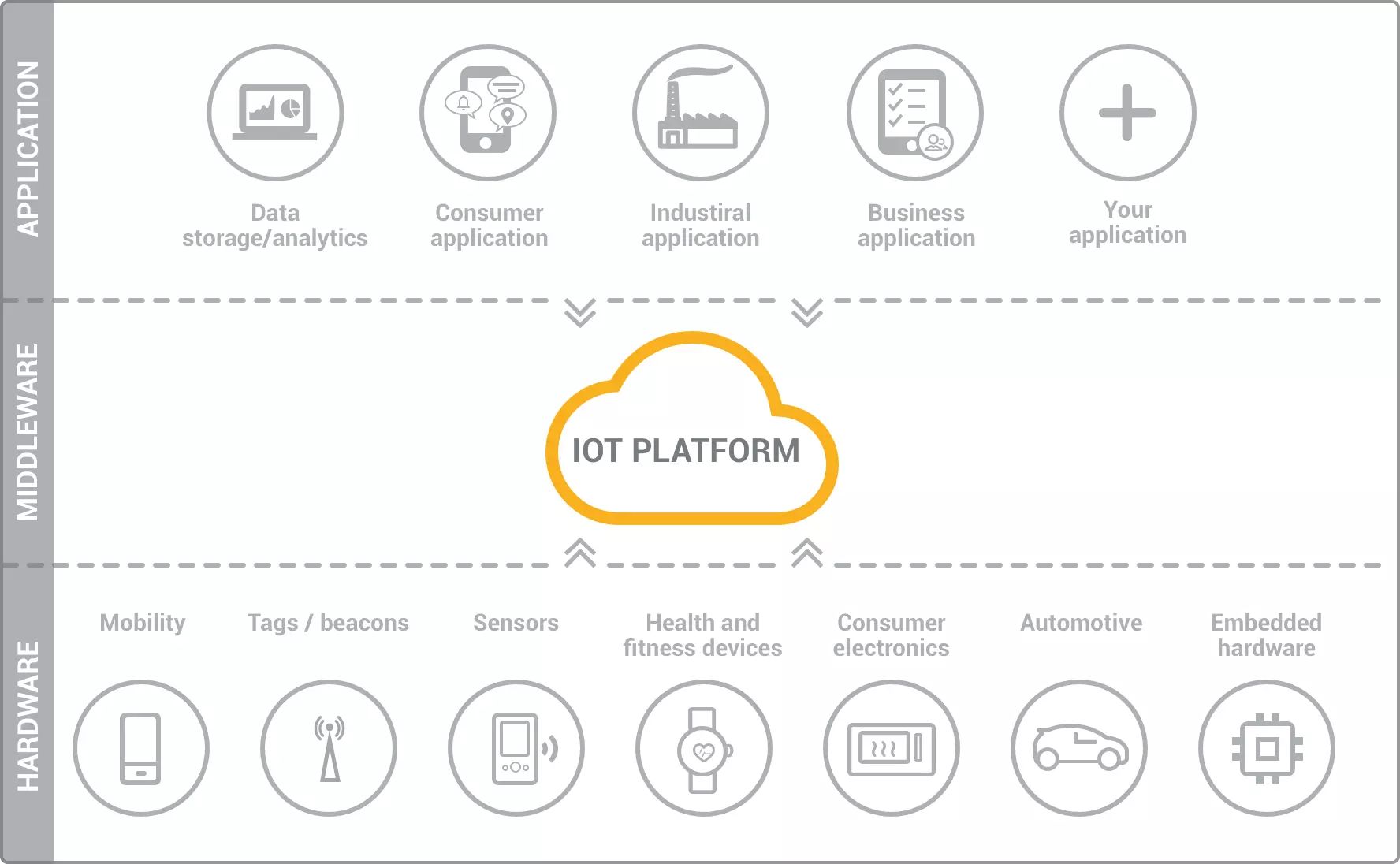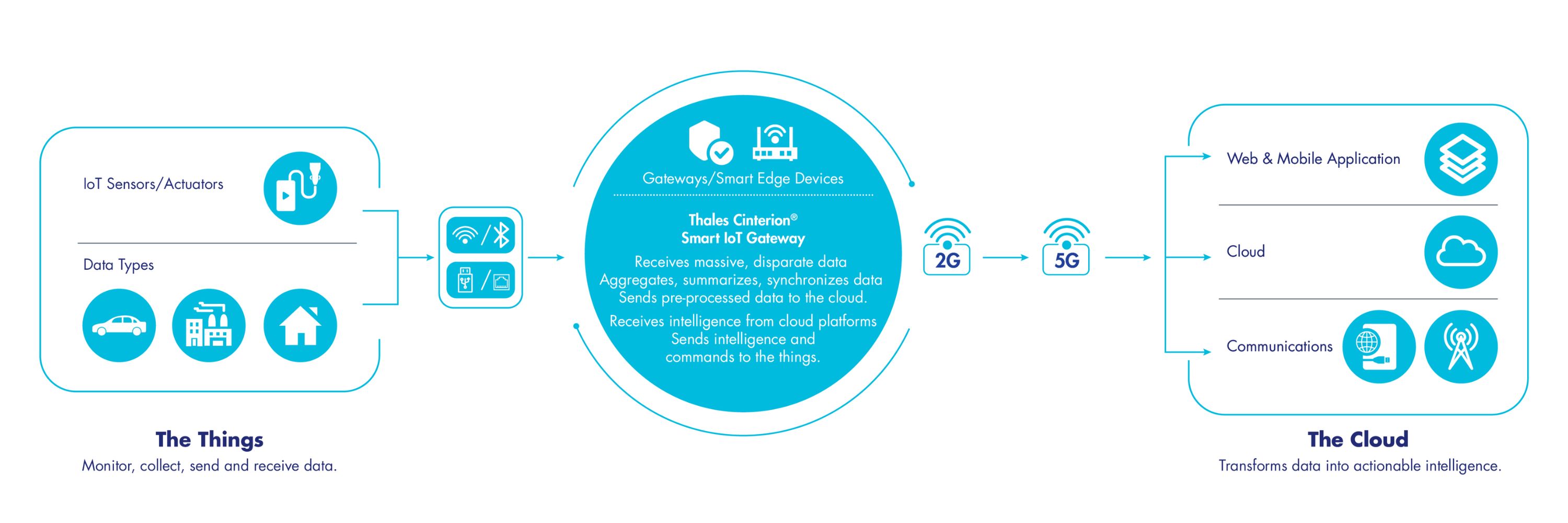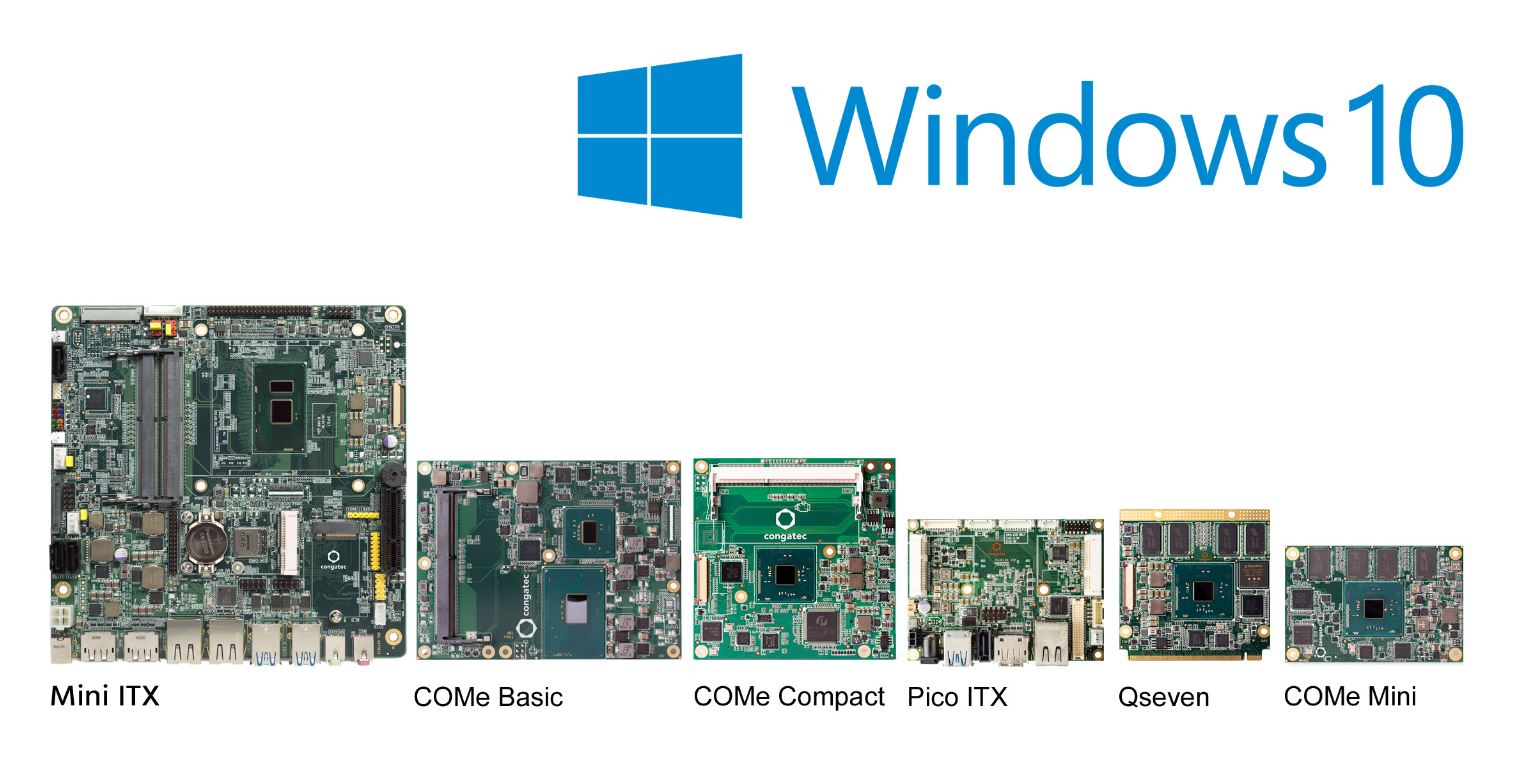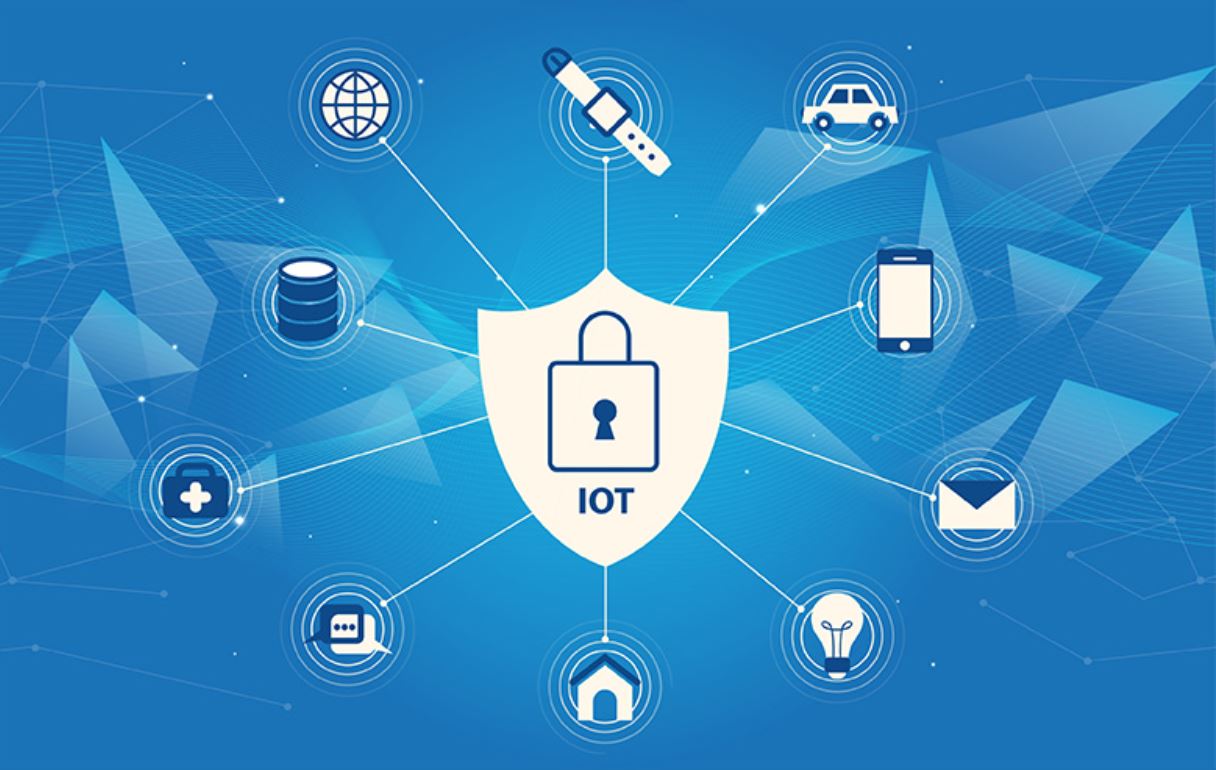Introduction
Welcome to the world of IoT (Internet of Things) platforms! In today’s interconnected world, IoT has gained immense popularity and has become a key driver of digital transformation across various industries. IoT platforms play a crucial role in enabling devices, sensors, and systems to communicate and interact with each other, creating a seamless network of interconnected devices.
An IoT platform is essentially a software layer that facilitates the management, connectivity, and integration of IoT devices and applications. These platforms provide a centralized hub for collecting, storing, analyzing, and visualizing IoT data, allowing businesses to derive valuable insights and make data-driven decisions.
The rapid adoption of IoT technology has necessitated the need for robust and scalable IoT platforms. Organizations of all sizes, from startups to large enterprises, are utilizing IoT platforms to harness the power of IoT and revolutionize their operations.
In this article, we will delve deeper into the world of IoT platforms. We will explore the key features of IoT platforms, discuss their importance, and highlight the various types of IoT platforms available in the market. Additionally, we will discuss the benefits of using an IoT platform and provide some crucial considerations to keep in mind when choosing the right platform for your specific needs.
So, whether you’re a business owner looking to implement IoT solutions or simply curious about the intricacies of IoT platforms, this article will serve as a comprehensive guide to help you navigate the exciting realm of IoT platforms.
What Is an IoT Platform?
An IoT platform is a software infrastructure that enables the communication, management, and integration of IoT devices, data, and applications. Think of it as the backbone of an IoT ecosystem, providing the necessary tools and services to connect, monitor, and control a wide range of IoT devices and systems.
At its core, an IoT platform acts as a bridge between physical devices and the digital world. It enables seamless data exchange between devices, collects and analyzes data, and enables the creation of applications and services that leverage the power of IoT.
An IoT platform typically consists of several components that work together to provide a comprehensive IoT solution. These components include:
- Connectivity: IoT platforms offer various connectivity options, such as Wi-Fi, Bluetooth, cellular, and LPWAN (Low-Power Wide-Area Network), allowing devices to connect to the platform and exchange data.
- Device Management: IoT platforms provide tools to manage and monitor connected devices. This includes device registration, provisioning, firmware updates, and remote device management.
- Data Management: IoT platforms handle the collection, storage, and analysis of data generated by IoT devices. They provide data processing capabilities, including real-time analytics, data modeling, and data visualization.
- Application Enablement: IoT platforms enable the development of applications and services that leverage IoT data. They provide APIs (Application Programming Interfaces) and SDKs (Software Development Kits) to facilitate the creation of custom applications.
- Security: IoT platforms incorporate robust security mechanisms to protect IoT devices and data from unauthorized access. This includes authentication, encryption, and access control.
In addition to these core components, IoT platforms may also offer additional features such as device simulation, data monetization, integration with third-party services, and support for machine learning and artificial intelligence.
In essence, an IoT platform acts as a unified solution that streamlines the complexities of managing and connecting IoT devices, allowing businesses to focus on leveraging the vast potential of IoT technology for improved efficiency, productivity, and innovation.
Why Are IoT Platforms Important?
IoT platforms play a pivotal role in unlocking the true potential of IoT technology and driving digital transformation across industries. Here are several reasons why IoT platforms are essential:
- Connectivity and Integration: IoT platforms enable seamless connectivity and integration of diverse IoT devices, regardless of the underlying communication protocols and technologies. This allows businesses to create a unified IoT ecosystem and maximize the value of interconnected devices.
- Data Management and Analytics: IoT platforms provide robust data management and analytics capabilities. They collect, store, and analyze vast amounts of data generated by IoT devices, enabling businesses to gain valuable insights and make data-driven decisions for improved efficiency, predictive maintenance, and enhanced customer experiences.
- Device Management and Monitoring: IoT platforms offer comprehensive device management features, including device provisioning, configuration, and remote monitoring. This simplifies the process of managing large-scale IoT deployments, ensuring optimal performance and security of connected devices.
- Application Development and Deployment: IoT platforms provide tools and frameworks for developing and deploying IoT applications and services. This empowers businesses to create custom IoT solutions that cater to specific needs, integrating with existing systems and enabling automation, remote control, and real-time analytics.
- Scalability and Flexibility: IoT platforms are designed to handle the scalability and agility demands of IoT deployments. They can accommodate a growing number of devices and adapt to changing business requirements, allowing businesses to scale their IoT initiatives without significant infrastructure changes.
- Security and Privacy: IoT platforms incorporate robust security mechanisms to protect IoT devices, data, and applications from potential cyber threats. They implement encryption, authentication, and access control measures to ensure the integrity and confidentiality of IoT systems.
By leveraging the capabilities of IoT platforms, businesses can harness the power of IoT technology to drive innovation, optimize processes, improve customer experiences, and gain a competitive edge in the market. Whether it’s in industries such as healthcare, manufacturing, transportation, or agriculture, IoT platforms offer a solid foundation for building smart, connected ecosystems that revolutionize operations and drive business growth.
Key Features of an IoT Platform
An IoT platform encompasses various key features that are crucial for enabling the seamless integration, management, and utilization of IoT devices and data. Here are some of the key features commonly found in IoT platforms:
- Connectivity Management: An IoT platform provides tools to manage and control the connectivity of IoT devices. It supports multiple communication protocols, such as Wi-Fi, Bluetooth, and cellular, allowing devices to communicate with each other and the platform.
- Data Collection and Analytics: IoT platforms have the capability to collect and process large volumes of data generated by IoT devices. They offer data analytics tools to derive meaningful insights and support real-time decision-making.
- Device Management: Device management is a critical feature of an IoT platform. It includes functionalities like device provisioning, firmware updates, remote monitoring, and troubleshooting, ensuring the smooth operation of IoT devices.
- Security and Privacy: IoT platforms incorporate robust security measures to protect IoT devices and data from unauthorized access. They implement encryption, authentication, and access control mechanisms to ensure data privacy and integrity.
- Application Development and Deployment: IoT platforms provide software development kits (SDKs) and APIs that enable developers to build custom applications and services on top of the platform. This facilitates rapid application development and deployment in the IoT ecosystem.
- Scalability and Flexibility: An effective IoT platform should be scalable and flexible to accommodate a growing number of connected devices and accommodate changing business requirements. It should be able to handle the increased workload and adapt to evolving needs.
- Integration Capabilities: Integration with other systems and services is a crucial feature of an IoT platform. It enables seamless communication and data exchange between the IoT platform and existing enterprise systems, allowing businesses to leverage their existing infrastructure.
- Data Visualization: IoT platforms often provide built-in data visualization tools to present insights in a meaningful and easily understandable format. This allows stakeholders to quickly grasp the key information from IoT data and make informed decisions.
These are just some of the key features that make an IoT platform a powerful tool for organizations seeking to capitalize on the potential of IoT technology. When evaluating different IoT platforms, it’s important to consider these features and choose a platform that best suits your specific needs and objectives.
Types of IoT Platforms
There are several types of IoT platforms available in the market, each catering to different business requirements and use cases. Here are some of the common types of IoT platforms:
- Connectivity Management Platforms: These platforms focus on managing the connectivity of IoT devices. They provide tools for device registration, network configuration, and monitoring of device connectivity statuses. Connectivity management platforms are essential for large-scale IoT deployments where managing and maintaining a vast number of devices’ connectivity is crucial.
- Data Analytics Platforms: Data analytics platforms focus on processing and analyzing the vast amounts of data generated by IoT devices. These platforms offer advanced analytics capabilities, such as real-time data processing, predictive analytics, and machine learning. Data analytics platforms are suitable for businesses looking to derive meaningful insights and make data-driven decisions from their IoT data.
- Application Enablement Platforms: Application enablement platforms provide tools and services for developing and deploying applications on top of the IoT platform. These platforms often include software development kits (SDKs), APIs, and pre-built application templates that simplify the application development process. Application enablement platforms are ideal for businesses that require custom applications tailored to their specific needs and industry.
- Device Management Platforms: Device management platforms focus on the management and monitoring of IoT devices. These platforms offer features such as device provisioning, firmware updates, status monitoring, and remote troubleshooting. Device management platforms are essential for organizations that aim to efficiently manage and maintain their IoT device fleets.
- Cloud-based IoT Platforms: Cloud-based IoT platforms leverage cloud infrastructure to provide scalability and flexibility. These platforms offer a range of IoT services, including data storage, analytics, device management, and application development. Cloud-based IoT platforms are suitable for businesses that require scalability and want to offload the infrastructure management burden to a cloud provider.
- Industry-Specific Platforms: These platforms cater to specific industries or verticals, such as healthcare, agriculture, manufacturing, and smart cities. They offer industry-specific features and functionalities tailored to the unique requirements of those sectors. Industry-specific IoT platforms provide targeted solutions, enabling businesses to leverage IoT technology to address specific industry challenges.
It’s important to assess your business needs, goals, and use cases when selecting an IoT platform. Consider factors such as scalability, data analytics capabilities, integration options, and industry focus to choose the right type of IoT platform that aligns with your requirements.
Benefits of Using an IoT Platform
Utilizing an IoT platform can bring a wide range of benefits to businesses across various industries. Here are some of the key benefits of using an IoT platform:
- Improved Efficiency: IoT platforms enable businesses to monitor and control their operations in real-time. By connecting and collecting data from IoT devices, businesses can automate processes, optimize resource utilization, and streamline operations. This leads to improved overall efficiency and productivity.
- Enhanced Decision-Making: IoT platforms provide access to real-time data and insights. By utilizing advanced analytics and visualization tools, businesses can make data-driven decisions, identify trends, and predict outcomes. This enables proactive decision-making, leading to better business outcomes.
- Cost Reduction: IoT platforms can help optimize asset utilization, minimize maintenance costs, and reduce energy consumption. By utilizing IoT data and analytics, businesses can identify inefficiencies and implement corrective measures, resulting in cost savings and improved resource allocation.
- New Revenue Streams: IoT platforms enable businesses to introduce new products, services, and business models. By leveraging IoT data and insights, businesses can develop innovative offerings, create new revenue streams, and provide value-added services to customers.
- Enhanced Customer Experiences: IoT platforms enable businesses to gather real-time data on customer behaviors, preferences, and usage patterns. This data can be leveraged to personalize interactions, tailor products and services, and deliver superior customer experiences.
- Improved Safety and Security: IoT platforms offer robust security features to protect IoT devices, data, and systems from potential cyber threats. By implementing encryption, authentication, and access control measures, businesses can ensure the integrity and security of their IoT infrastructure.
- Scalability and Flexibility: IoT platforms are designed to handle large-scale deployments and adapt to changing business needs. They provide scalability and flexibility, allowing businesses to easily scale their IoT initiatives and integrate with existing systems and infrastructure.
- Sustainability and Environment: IoT platforms can contribute to sustainability efforts by enabling energy management, waste reduction, and environmental monitoring. Real-time data from IoT devices can help identify areas of improvement, optimize resource consumption, and minimize environmental impact.
By leveraging the benefits of an IoT platform, businesses can gain a competitive edge, drive innovation, improve operational efficiency, and deliver superior customer experiences. It is important to carefully evaluate and select the right IoT platform that aligns with your business goals and objectives to maximize the potential benefits it can bring.
Considerations When Choosing an IoT Platform
Choosing the right IoT platform is a critical decision for businesses. With a plethora of options available, it’s important to consider several factors to ensure you select an IoT platform that aligns with your business needs and objectives. Here are some key considerations when choosing an IoT platform:
- Scalability: Evaluate the scalability of the platform to ensure it can handle the growing number of connected devices and data volumes as your IoT deployment expands.
- Compatibility: Consider the compatibility of the IoT platform with your existing systems and technology infrastructure. Ensure that the platform supports the connectivity protocols and standards required by your IoT devices.
- Data Management and Analytics: Assess the data management and analytics capabilities of the platform. Look for features such as real-time data processing, advanced analytics, and visualization tools to derive actionable insights from your IoT data.
- Security: Security is of utmost importance in the IoT ecosystem. Evaluate the security features offered by the platform, including device authentication, data encryption, and access control mechanisms, to ensure that your IoT infrastructure and data are protected.
- Flexibility and Customization: Determine the level of flexibility and customization options the platform provides. Look for an IoT platform that allows you to tailor the solution to your specific business needs and integrate with your existing systems and applications.
- Support and Maintenance: Consider the level of technical support and maintenance provided by the platform vendor. Assess their responsiveness, availability, and expertise in IoT deployments to ensure ongoing support for your IoT initiatives.
- Costs: Evaluate the pricing model of the IoT platform. Consider both upfront costs and ongoing expenses, such as licensing fees, data storage costs, and additional service charges. Ensure that the platform aligns with your budget and offers a favorable return on investment (ROI).
- Industry Focus: Determine if the IoT platform has specific industry expertise or support for your industry. Look for platforms that offer industry-specific features or solutions that cater to your unique business requirements.
- Integration Capabilities: Assess the integration capabilities of the IoT platform. Consider how easily the platform can integrate with your existing software systems, databases, and other third-party applications, to ensure seamless data exchange and interoperability.
By carefully considering these factors, businesses can make an informed decision when choosing an IoT platform that meets their specific needs. It’s essential to conduct thorough research, evaluate demos or trial versions, and seek recommendations or references from industry peers to ensure the chosen IoT platform aligns with your business objectives and paves the way for successful IoT implementation.
Examples of Popular IoT Platforms
There are numerous IoT platforms available in the market, each offering unique features and capabilities. Here are some popular IoT platforms that are widely used and trusted by businesses:
- Amazon Web Services (AWS) IoT: AWS IoT is a comprehensive cloud-based platform that offers a range of services and tools for building, deploying, and managing IoT applications. It provides scalable connectivity, robust device management, real-time data processing, and integration with other AWS services, making it a popular choice for businesses of all sizes.
- Microsoft Azure IoT: Azure IoT is a robust and scalable platform that provides a wide range of tools and services for building and deploying IoT solutions. It offers device connectivity, data storage, powerful analytics, and seamless integration with other Microsoft services, making it an attractive choice for businesses utilizing the Microsoft ecosystem.
- Google Cloud IoT Core: Google Cloud IoT Core is a managed service that allows businesses to securely connect, manage, and ingest data from billions of IoT devices. It integrates with Google Cloud’s analytics, machine learning, and big data services, providing a powerful platform for deriving insights from IoT data.
- IBM Watson IoT Platform: Watson IoT Platform from IBM is a robust and enterprise-grade platform that provides end-to-end capabilities for IoT solutions. It offers device management, advanced analytics, AI capabilities, and integration with IBM Cloud Services, making it suitable for large-scale, complex IoT deployments.
- Bosch IoT Suite: Bosch IoT Suite is a comprehensive IoT platform that provides tools and services for developing and managing IoT solutions. It offers connectivity management, device management, data processing, and integration capabilities, making it an ideal choice for businesses in manufacturing, automotive, and other industries.
- Cisco IoT Cloud Connect: Cisco IoT Cloud Connect is a secure cloud-based platform that provides connectivity and management of IoT devices. It offers features such as data collection, device monitoring, security, and analytics, catering to the needs of businesses in various industries.
- Siemens MindSphere: MindSphere from Siemens is an open, cloud-based IoT operating system that enables businesses to develop and deploy IoT applications. It provides connectivity, data analytics, and integration with Siemens’ industrial automation and control systems, making it a popular choice for industrial IoT applications.
These are just a few examples of popular IoT platforms available in the market. It’s important to evaluate and compare different platforms based on your specific business needs, scalability requirements, integration capabilities, and industry focus to choose the one that best fits your IoT initiatives.
Conclusion
IoT platforms have become indispensable in today’s interconnected world, providing businesses with the tools and infrastructure to harness the power of IoT technology. These platforms enable seamless connectivity, data management, and application development, revolutionizing industries across the globe.
In this article, we explored the concept of IoT platforms and their significance in driving digital transformation. We discussed the key features that make up an IoT platform, including connectivity management, data analytics, device management, security, and application enablement. We also explored the different types of IoT platforms available, such as connectivity management platforms, data analytics platforms, and cloud-based platforms.
Furthermore, we highlighted the numerous benefits that businesses can gain by leveraging IoT platforms. From improved efficiency and enhanced decision-making to cost reduction and new revenue streams, IoT platforms provide a wide range of advantages. They enable businesses to create smarter, more connected ecosystems that drive innovation, improve operational processes, and deliver superior customer experiences.
When selecting an IoT platform, we discussed important considerations, such as scalability, compatibility, data management, security, flexibility, and industry focus. By carefully evaluating these factors, businesses can choose an IoT platform that aligns with their needs and objectives, ensuring a successful IoT implementation.
Lastly, we introduced several popular IoT platforms, including AWS IoT, Azure IoT, Google Cloud IoT Core, IBM Watson IoT Platform, Bosch IoT Suite, Cisco IoT Cloud Connect, and Siemens MindSphere. These platforms offer a wide array of features and services, catering to businesses in different industries and with varied requirements.
In conclusion, IoT platforms are instrumental in unlocking the full potential of IoT technology. As the IoT landscape continues to evolve, businesses must embrace these platforms to capitalize on the opportunities presented by the connected world.

























